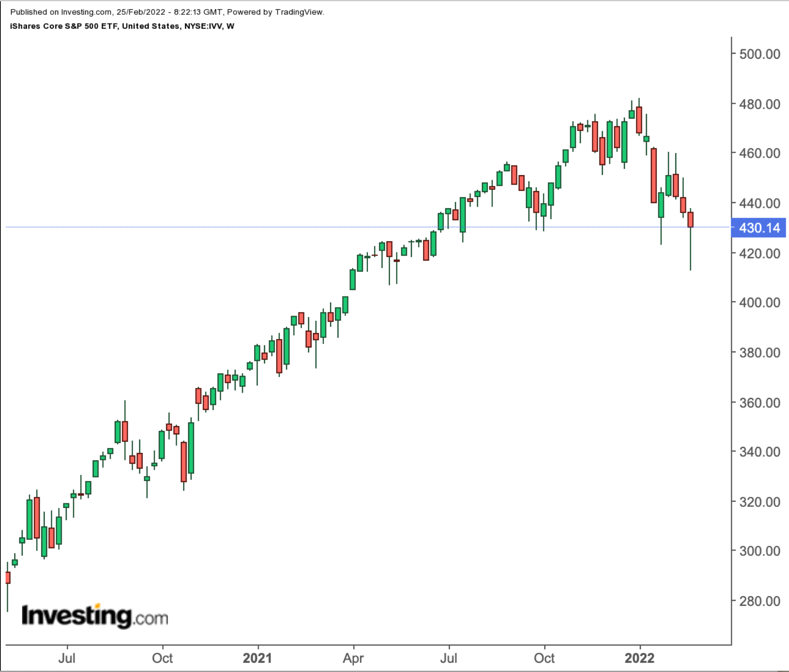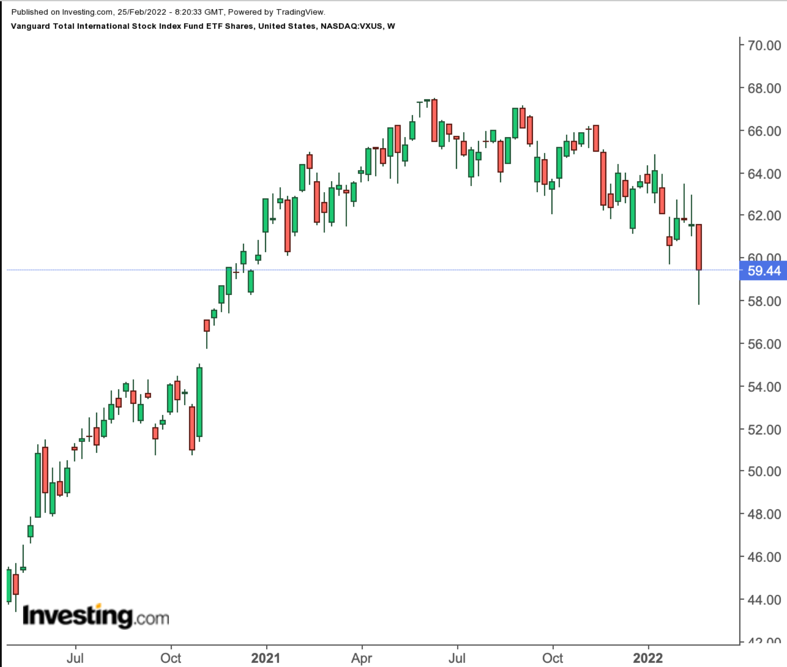Bearish stock predictions amid geopolitical and economic concerns are unnerving market participants. Yet, seasoned investors realize that having a diversified portfolio and long-term investing horizon can help achieve significant returns.
For investors, appreciating how money can grow due to the effect of compound interest is important. We’d like to remind our readers the Rule of 72, which would help you calculate how quickly your investment could double; thanks to compounding. You’d simply divide the number 72 by the percent annual return.
Let’s say an (equity) investment is expected to return 10% a year. Thus, 72/10 = 7.2. Or it would take slightly over seven years for your investment to double.
When we look at the long-term returns of the S&P 500 index, the average annual return has been well over 10% (including dividends). Therefore, retail investors should not panic about short-term moves in broader indices, but instead continue investing for later years.
With that information, today’s article introduces two exchange-traded funds (ETFs) to buy and hold forever.
1. iShares Core S&P 500 ETF
- Current Price: $430.14
- 52-week range: $373.26 - $482.07
- Dividend yield: 1.39%
- Expense ratio: 0.03%
The S&P 500 index includes the 500 large capitalization (cap) public companies stateside. When professionals discuss 'the market,' they typically refer to the S&P 500. Therefore, this highly popular index is regarded as the primary gauge of the momentum on Wall Street.
Created in 1957, the S&P 500 index is market-cap-weighted. Thus, firms with larger market caps also have a larger percentage allocation. The index is rebalanced quarterly.
There are several ETFs that track the returns of the S&P 500 index. The SPDR S&P 500 ETF Trust(NYSE:SPY) is the oldest and largest of those funds.
Our first fund for today, the iShares Core S&P 500 ETF (NYSE:IVV), is another ETF that tracks the S&P 500 index.
IVV was first listed in May 2000, and net assets stand around $316 billion. The top 10 holdings account for close to 28% of net assets of $307.6 billion.
In terms of sub-sectors, we see information technology, IT (29.11%), healthcare (13.26%), consumer discretionary (12.51%), financials (10.66%), communication (10.13%), industrials (7.75%), and consumer staples (5.86%), among others.
Apple (NASDAQ:AAPL), Microsoft (NASDAQ:MSFT), Amazon (NASDAQ:AMZN), Alphabet (NASDAQ:GOOGL), Tesla (NASDAQ:TSLA), NVIDIA (NASDAQ:NVDA) lead the names on the roster.
In the past 12 months, the ETF is up to 8.5%, and hit a record high on Jan. 4, 2022. However, since then stocks in the fund have come under pressure and IVV has lost over 11.5% so far in the year. Trailing P/E and P/B ratios stand at 22.35x and 4.23x.
Currently, we have grey clouds over Wall Street and other global markets. However, S&P 500 members are still well-poised to benefit from the growth in IT as well as other sectors of the economy. Therefore, potential investors could regard the current decline an opportunity to invest in a fund like IVV.
2. Vanguard Total International Stock Index Fund ETF
- Current Price: $59.44
- 52-week range: $57.90 - $67.51
- Dividend yield: 6.33%
- Expense ratio: 0.08% per year
Our next fund, the Vanguard Total International Stock Index Fund ETF (NASDAQ:VXUS), takes us overseas. The fund tracks the performance of the FTSE Global All Cap ex US Index, and currently invests in 7,717 global stocks, excluding names from the US.

VXUS fund started trading January 2011. The top 10 holdings account for close to 9% of net assets of $402.9 billion.
In terms of country allocation, Japan has the highest slice with over 15%. Next come businesses from the U.K. (9.9%), China (8.6%), Canada (7.3%), France (6.4%), Switzerland (5.8%), and others.
Among the leading sectors (by weighting) are finance (21.1%), electronic technology (8.9%), consumer non-durables (7.5%), health technology (7.2%), technology services (6.4%), and producer manufacturing (5.2%), among others.
Semiconductor heavyweight Taiwan Semiconductor (NYSE:TSM), Chinese technology and entertainment giant Tencent (OTC:TCEHY), Swiss consumer group Nestle (OTC:NSRGY) and pharma group Roche (OTC:RHHBY); South Korean Samsung Electronics (OTC:SSNLF); and Japanese car manufacturer Toyota Motor (NYSE:TM) lead the names in the portfolio.
VXUS is down 5.7% in the last 12 months and 5.4% since the start of the year. Trailing P/E and P/B ratios are 13.7x and 1.8x respectively. We believe the fund, which is home to some of the most important global companies, deserves your attention.
